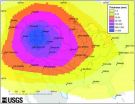(Press-News.org) Pay attention, mom and dad, especially when your infant looks at you and babbles.
Parents may not understand a baby's prattling, but by listening and responding, they let their infants know they can communicate which leads to children forming complex sounds and using language more quickly.
That's according to a new study by the University of Iowa and Indiana University that found how parents respond to their children's babbling can actually shape the way infants communicate and use vocalizations.
The findings challenge the belief that human communication is innate and can't be influenced by parental feedback. Instead, the researchers argue, parents who consciously engage with their babbling infants can accelerate their children's vocalizing and language learning.
"It's not that we found responsiveness matters," says Julie Gros-Louis, assistant professor of psychology at the UI and corresponding author on the study, published in the July/August edition of the journal Infancy. "It's how a mother responds that matters."
Researchers observed the interactions between 12 mothers and their 8-month-old infants during free play twice a month for 30 minutes over a six-month period. They noted how the mothers responded to their child's positive vocalizations, such as babbling and cooing, especially when it was directed toward the mother. Current research in Gros-Louis's lab has found similar levels of responsiveness of mothers and fathers to infants' babbling.
What researchers discovered is infants whose mothers responded to what they thought their babies were saying, showed an increase in developmentally advanced, consonant-vowel vocalizations, which means the babbling has become sophisticated enough to sound more like words. The babies also began directing more of their babbling over time toward their mothers.
On the other hand, infants whose mothers did not try as much to understand them and instead directed their infants' attention at times to something else did not show the same rate of growth in their language and communication skills.
Gros-Louis says the difference was mothers who engaged with their infants when they babbled let their children know they could communicate. Consequently, those babies turned more often to their mothers and babbled.
"The infants were using vocalizations in a communicative way, in a sense, because they learned they are communicative," Gros-Louis says.
In a survey a month after the study ended, mothers who were most attentive to their infants' babbling reported their children produced more words and gestures at age 15 months.
Gros-Louis was a postdoctoral fellow at Indiana when she, Andrew King, a senior scientist in psychology, and Meredith West, a psychology professor at Indiana, conducted the mother-infant study, titled "Maternal Responsiveness and the Development of Directed Vocalizing in Social Interactions."
"Julie is showing that social stimulation shapes at a very early age what children attend to," says King. "And if you can show the parent can shape what an infant attends to, there is the possibility to shape what the child is sensitive to. They are learning how to learn."
The current study builds upon previous research by King and West, published in 2003 in the journal of Proceedings of the National Academy of Sciences. In that study, mothers were instructed to respond positively – such as smiling or touching—each time their infants looked at them and babbled. The results found the babies learned to vocalize advanced syllable-like sounds more readily than the typical infant.
Gros-Louis and her colleagues took that research a step further by observing the interactions of mothers and infants over a longer period of time and without instructing the mothers how to respond. Thus, they added a control group—the mothers who directed their babies' attention elsewhere versus those who actively engaged when their infants looked at them and babbled.
Once again, the results showed infants whose mothers attended more closely to their babbling vocalized more complex sounds and develop language skills sooner.
Combined, the two studies could change how people think about human communicative development. However, additional research involving more participants is needed to validate the findings, the researchers said.
"The debate here is huge," King says.
INFORMATION:
Funding for the research came from a grant awarded to Gros-Louis from the National Institute of Child Health and Human Development, part of the National Institutes of Health (F32 HD045040-01).
Parents, listen next time your baby babbles
University of Iowa study finds how parents respond to their infant's babbling can speed the child's language development
2014-08-27
ELSE PRESS RELEASES FROM THIS DATE:
Lifetime of fitness: A fountain of youth for bone and joint health?
2014-08-27
ROSEMONT, Ill.—Being physically active may significantly improve musculoskeletal and overall health, and minimize or delay the effects of aging, according to a review of the latest research on senior athletes (ages 65 and up) appearing in the September issue of the Journal of the American Academy of Orthopaedic Surgeons (JAAOS).
It long has been assumed that aging causes an inevitable deterioration of the body and its ability to function, as well as increased rates of related injuries such as sprains, strains and fractures; diseases, such as obesity and diabetes; and ...
Educated consumers more likely to use potentially unreliable online healthcare information
2014-08-27
The last time you experienced worrisome medical symptoms, did you look for advice online before consulting a health-care professional? If so, you're not alone. Consumers are increasingly turning to forums, video-sharing sites, and peer support groups to gather anecdotal information and advice, which may distract them from more reliable and trustworthy sources. New research to be presented at the HFES 2014 Annual Meeting in Chicago studies the characteristics of consumers who use the Internet to collect health-care information.
"Age, educational levels, and health status ...
Southwest may face 'megadrought' this century
2014-08-27
Due to global warming, scientists say, the chances of the southwestern United States experiencing a decade long drought is at least 50 percent, and the chances of a "megadrought" – one that lasts over 30 years – ranges from 20 to 50 percent over the next century.
The study by Cornell University, University of Arizona and U.S. Geological Survey researchers will be published in a forthcoming issue of the American Meteorological Society's Journal of Climate.
"For the southwestern U.S., I'm not optimistic about avoiding real megadroughts," said Toby Ault, Cornell assistant ...
Scientist uncovers red planet's climate history in unique meteorite
2014-08-27
TALLAHASSEE, Fla. — Was Mars — now a cold, dry place — once a warm, wet planet that sustained life? And if so, how long has it been cold and dry?
Research underway at the National High Magnetic Field Laboratory may one day answer those questions — and perhaps even help pave the way for future colonization of the Red Planet. By analyzing the chemical clues locked inside an ancient Martian meteorite known as Black Beauty, Florida State University Professor Munir Humayun and an international research team are revealing the story of Mars' ancient, and sometimes startling, ...
MU researchers develop more accurate Twitter analysis tools
2014-08-27
COLUMBIA, Mo. – "Trending" topics on the social media platform Twitter show the quantity of tweets associated with a specific event. However, trends only show the highest volume keywords and hashtags, and may not give qualitative information about the tweets themselves. Now, using data associated with the Super Bowl and World Series, researchers at the University of Missouri have developed and validated a software program that analyzes event-based tweets and measures the context of tweets rather than just the quantity. The program will help Twitter analysts gain better ...
Marijuana compound may offer treatment for Alzheimer's disease
2014-08-27
Tampa, FL (Aug. 26, 2014) -- Extremely low levels of the compound in marijuana known as delta-9-tetrahydrocannabinol, or THC, may slow or halt the progression of Alzheimer's disease, a recent study from neuroscientists at the University of South Florida shows.
Findings from the experiments, using a cellular model of Alzheimer's disease, were reported online in the Journal of Alzheimer's Disease.
Researchers from the USF Health Byrd Alzheimer's Institute showed that extremely low doses of THC reduce the production of amyloid beta, found in a soluble form in most aging ...
More wolf spiders feasting on American toads due to invasive grass, UGA study shows
2014-08-27
Athens, Ga. – An invasive grass species frequently found in forests has created a thriving habitat for wolf spiders, who then feed on American toads, a new University of Georgia study has found.
Japanese stiltgrass, which was accidentally introduced to the U.S. in the early 1900s, is one of the most pervasive invasive species and has spread to more than a dozen states in the past century, particularly in the Southeast. Typically found along roads and in forests, it can survive in widely diverse ecosystems and has been found to impact native plant species, invertebrate ...
Orion rocks! Pebble-size particles may jump-start planet formation
2014-08-27
Rocky planets like Earth start out as microscopic bits of dust tinier than a grain of sand, or so theories predict.
Astronomers using the National Science Foundation's (NSF) Green Bank Telescope (GBT) have discovered that filaments of star-forming gas near the Orion Nebula may be brimming with pebble-size particles -- planetary building blocks 100 to 1,000 times larger than the dust grains typically found around protostars. If confirmed, these dense ribbons of rocky material may well represent a new, mid-size class of interstellar particles that could help jump-start ...
AGU: Yellowstone supereruption would send ash across North America
2014-08-27
WASHINGTON, D.C. – In the unlikely event of a volcanic supereruption at Yellowstone National Park, the northern Rocky Mountains would be blanketed in meters of ash, and millimeters would be deposited as far away as New York City, Los Angeles and Miami, according to a new study.
An improved computer model developed by the study's authors finds that the hypothetical, large eruption would create a distinctive kind of ash cloud known as an umbrella, which expands evenly in all directions, sending ash across North America.
A supereruption is the largest class of volcanic ...
'Junk' blood tests may offer life-saving information
2014-08-27
Tel Aviv — Some 30 percent of all positive hospital blood culture samples are discarded every day because they're "contaminated" — they reflect the presence of skin germs instead of specific disease-causing bacteria.
Rather than toss these compromised samples into the trash, clinicians may be able to use the resistance profiles of skin bacteria identified by these tests to treat patients with antibiotics appropriate to their ailment, Tel Aviv University researchers say. Dr. Gidi Stein and Dr. Danny Alon of TAU's Sackler Faculty of Medicine and the Department of Internal ...
LAST 30 PRESS RELEASES:
Doctors and nurses believe their own substance use affects patients
Life forms can planet hop on asteroid debris – and survive
Sylvia Hurtado voted AERA President-Elect; key members elected to AERA Council
Mount Sinai and King Saud University Medical City forge a three-year collaboration to advance precision medicine in familial inflammatory bowel disease
AI biases can influence people’s perception of history
Prenatal opioid exposure and well-being through adolescence
Big and small dogs both impact indoor air quality, just differently
Wearing a weighted vest to strengthen bones? Make sure you’re moving
Microbe survives the pressures of impact-induced ejection from Mars
Asteroid samples offer new insights into conditions when the solar system formed
Fecal transplants from older mice significantly improve ovarian function and fertility in younger mice
Delight for diastereomer production: A novel strategy for organic chemistry
Permafrost is key to carbon storage. That makes northern wildfires even more dangerous
Hairdressers could be a secret weapon in tackling climate change, new research finds
Genetic risk for mental illness is far less disorder-specific than clinicians have assumed, massive Swedish study reveals
A therapeutic target that would curb the spread of coronaviruses has been identified
Modern twist on wildfire management methods found also to have a bonus feature that protects water supplies
AI enables defect-aware prediction of metal 3D-printed part quality
Miniscule fossil discovery reveals fresh clues into the evolution of the earliest-known relative of all primates
World Water Day 2026: Applied Microbiology International to hold Gender Equality and Water webinar
The unprecedented transformation in energy: The Third Energy Revolution toward carbon neutrality
Building on the far side: AI analysis suggests sturdier foundation for future lunar bases
Far-field superresolution imaging via k-space superoscillation
10 Years, 70% shift: Wastewater upgrades quietly transform river microbiomes
Why does chronic back pain make everyday sounds feel harsher? Brain imaging study points to a treatable cause
Video messaging effectiveness depends on quality of streaming experience, research shows
Introducing the “bloom” cycle, or why plants are not stupid
The Lancet Oncology: Breast cancer remains the most common cancer among women worldwide, with annual cases expected to reach over 3.5 million by 2050
Improve education and transitional support for autistic people to prevent death by suicide, say experts
GLP-1 drugs like Ozempic could cut risk of major heart complications after heart attack, study finds
[Press-News.org] Parents, listen next time your baby babblesUniversity of Iowa study finds how parents respond to their infant's babbling can speed the child's language development





